12 questions to ask at an animal shelter before adopting a pet
Gabbi Shaw

- Rescuing a pet from an animal shelter is one of the most honorable things you can do.
- But it's not always easy — there are things you need to know about your pet before they come home.
What are the shelter's requirements for adoption?
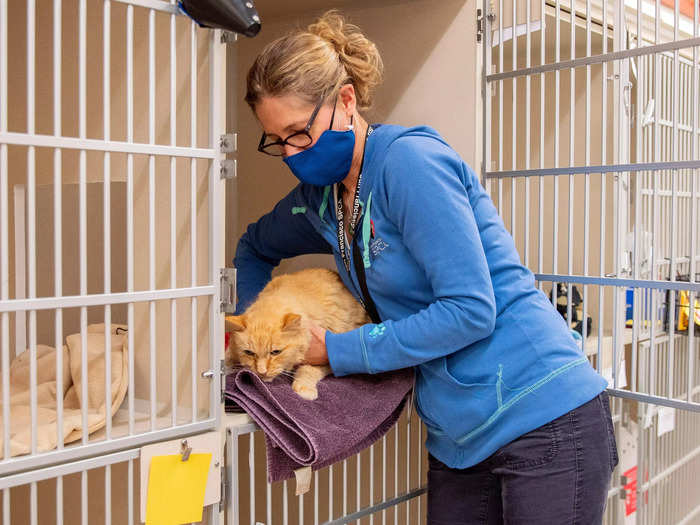
This is a basic one, but an important one.
"Some people may be surprised by how rigid some of the requirements are to adopt a pet," Chyrle Bonk, a veterinarian working with Pet Keen, told Insider. "They may expect that just anyone can adopt as many pets as they want when, in reality, some shelters have a very structured adoption process. This is to ensure that pets go to good homes."
Prospective owners should expect to be asked about their living situation, "such as working long hours, small children, other animals, living next to a busy road without a fenced yard, etc," Bonk said.
"This shouldn't prevent them from getting a pet, but it wouldn't hurt to ask them how they plan to handle these obstacles in order to give the pet the best home possible. Some prospective adopters don't realize what a commitment getting a pet is and may not have thought about all of the angles," she added.
How much exercise does the animal need?
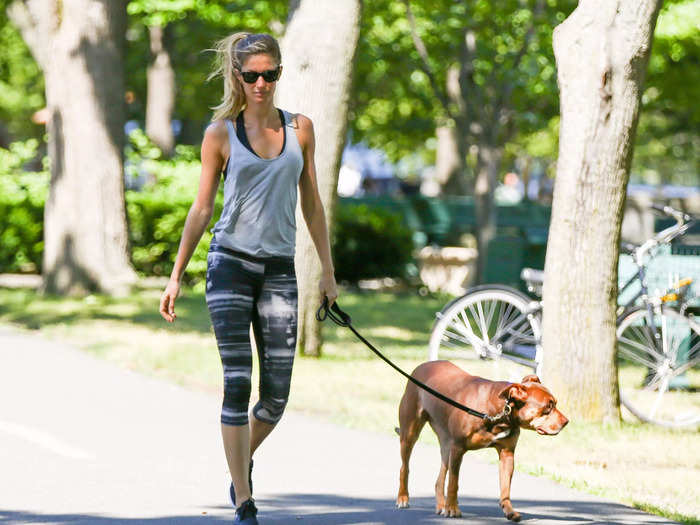
If you don't have a yard, it might be difficult to get a larger animal. Different dog breeds, as well as individual dogs within those breeds, also need different amounts of exercise. If you're not around to walk a dog, you might be more suited to a different pet, like a cat or a bunny.
What was the animal's history before getting to the shelter?
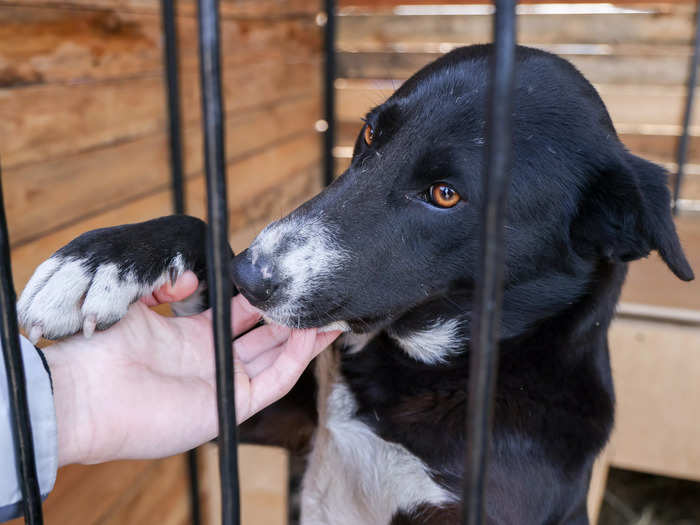
Bonk listed some other questions that are relevant for an adoptive family to ask: Why are they in the shelter? How long have they been there? Have they been adopted and returned?
These answers can help you understand your pet a bit more and make the transition as seamless as possible.
What's the history of the dog since he's been at the shelter?
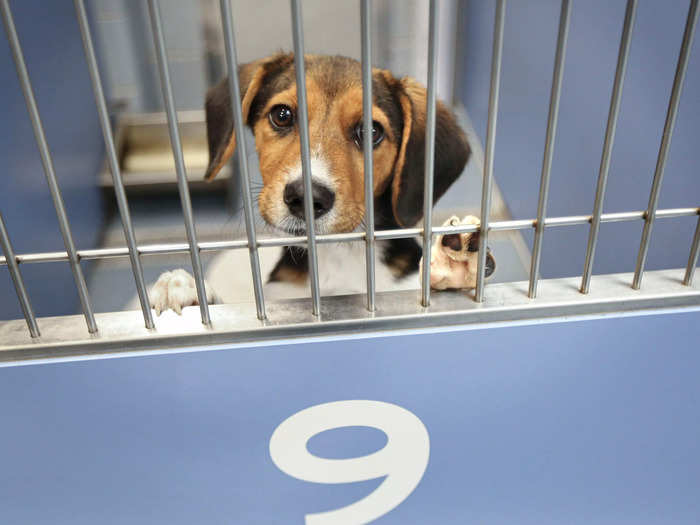
This is a direct follow-up to the previous question: Now that the animal is in the shelter, safe, what have they been like?
"Our most recent dog adoption was Barli; he was picked up as a stray so there was no history before his arrival in animal control," pet writer and expert Paris Permenter told Insider. "However, we learned that Barli had lived with a foster family for a week and loved their Australian shepherd. When we brought our Australian shepherd mix for a meet and greet at the shelter, it was love at first sight."
How can the shelter support you with introducing a new pet to one you already have in your home?

Sandy Mallalieu, director of marketing at Humane Society Silicon Valley, recommended asking this question. Some shelters have tips on how to introduce your new pet to your current furry friends, or they can even provide safe spaces at the shelter for this meeting to take place.
What type of food has the animal been eating at the shelter?

"Although you may not want to continue that diet, it's good to obtain a week's supply so you can slowly transition your dog [or any other other pet] to the new diet without tummy upset," said Permenter.
If you're adopting a dog, does the dog enjoy leashed walks and seem to have any previous experience on a leash?
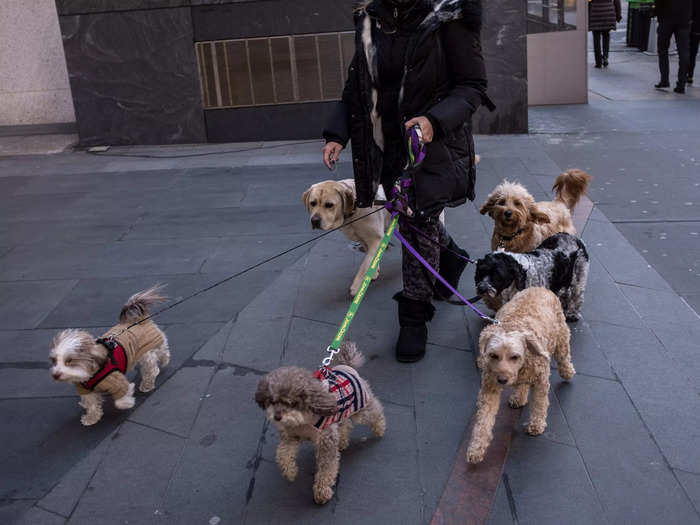
This is important information to know: If you know your dog already likes taking walks, chances are your pup might be a bit more socialized, and you won't have to teach your dog how to behave out in the real world.
Conversely, if your dog has fears about the leash and taking walks, there's probably some trauma you'll have to work through together.
Has the dog had any experience with car rides?

Talking from personal experience — it's best to know if your new friend gets carsick beforehand. When my dog came home for the first time, she vomited inside our car. It's just a solid rule of thumb to be prepared for this situation, but the shelter might also be able to assure you that your pet reacts well to being inside a car.
This is a worst-case scenario, but what is the shelter's policy for returning an animal?
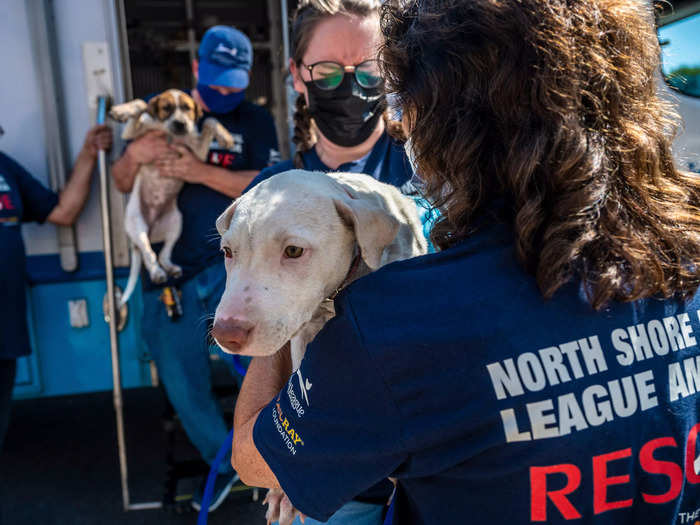
This could be for any number of reasons: your pet might've bit someone or your lifestyles aren't compatible. You should know what the process of returning the animal would be, if worse comes to worst.
What's included in the adoption fee?
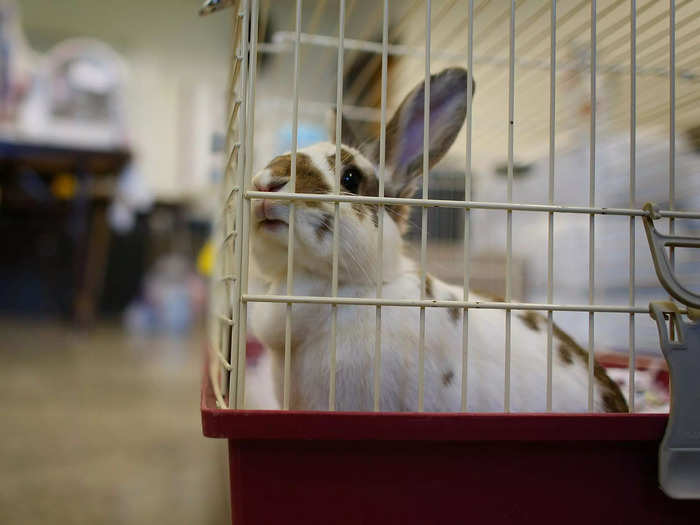
For example, is the animal fully vaccinated, micro-chipped, spayed/neutered before adoption? All of these procedures cost money if they aren't done by the shelter beforehand — and that doesn't take into account all of the supplies you'll need.
"The first year of owning a pet can come with an unexpected price tag. From the start of acquiring a pet, you must purchase all the basics — crate, collar, leash, food, treats, and more depending on the animal," Natalie Buxton, the director of marketing and communications at Operation Kindness, a shelter in Carrollton, Texas, told Insider.
"They may seem like minor expenses now, but they can add up very quickly, especially for maintenance items like food, cat litter, vet care, vaccinations, and more."
Is the animal good with kids?
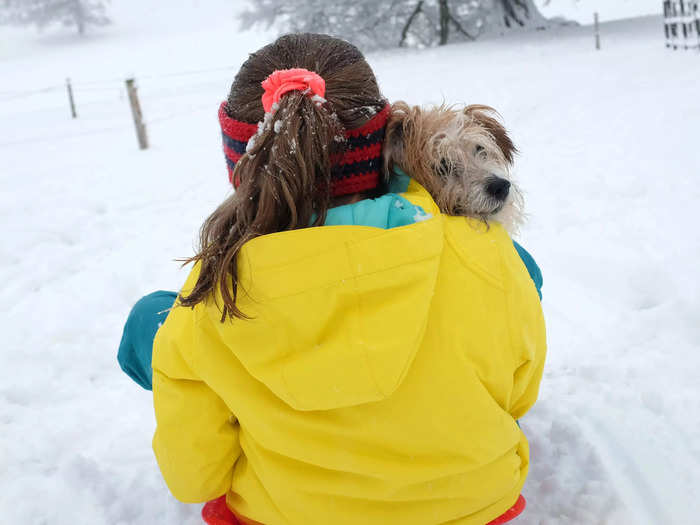
As Daniel Caughill, co-founder of The Dog Tale, an online resource for dog owners, told Insider, "The last thing you want is to take an animal out of a shelter, only to return them a week later after they bite a child."
"Even if you don't have your own kids, ask the shelter workers if they know how the animal feels around children. This will help you know how to introduce your pet to kids in the neighborhood," he added.
What do I need to do to make the animal feel safe?
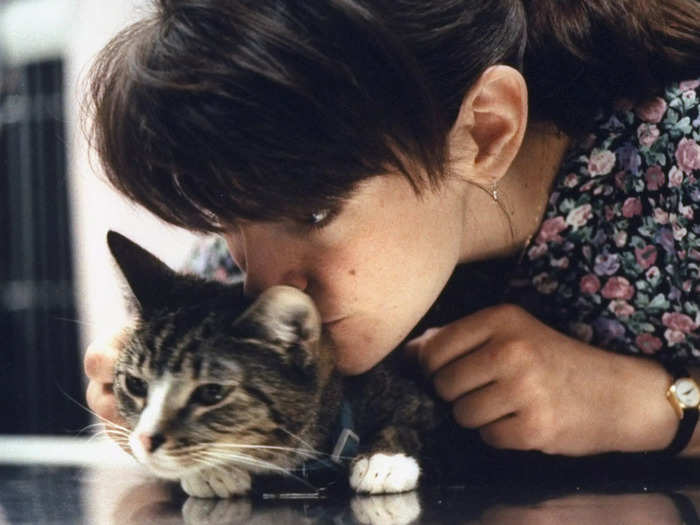
There could be certain triggers that set your rescue pet off, Caughill explained, including car rides, loud noises, other pets, children, or even men.
"If you know what triggers your pet, you can take steps to help them feel safe during their first few weeks and slowly introduce these triggers in a measured, responsible way," he said.
READ MORE ARTICLES ON
Popular Right Now
Popular Keywords
Advertisement